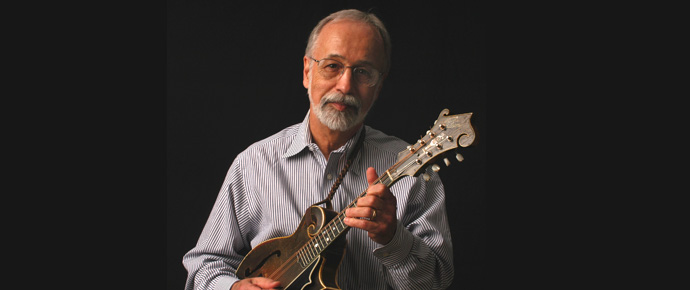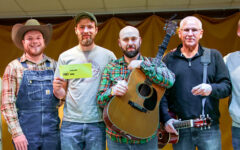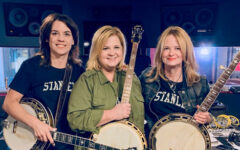
One of the most cherished and beloved members of the bluegrass community is gone. Roland White, multi-instrumentalist and singer, has died today after having suffered a severe heart attack a week ago. He was 83 years of age.
Growing up in Maine, alongside his two brothers, Eric, and fellow bluegrass legend, Clarence, Roland first played music with his family, including his sister, Joanne. While in his teens, the family moved to southern California, and the White Brothers launched The Country Boys, which became The Kentucky Colonels when Roland returned from military service. Their 1964 recording, Appalachian Swing, turned heads all over the world, based largely on Clarence’s innovative guitar playing and Roland’s mandolin .
Roland did a stint with Bill Monroe on guitar, followed by four years on mandolin with Lester Flatt, and his entire world was turned upside down in 1973 when a reunion tour with The White Brothers was cut short when Clarence was struck by a moving vehicle and killed while loading equipment into a car.
The next stage of his career saw more than twelve years with his great friend Alan Munde in Country Gazette, followed by another dozen with The Nashville Bluegrass Band. Then in 2000, White launched the Roland White Band, performing with his wife, Diane Bouska, on guitar. There were many solo projects along the way, none more influential then his 1976 release, I Wasn’t Born To Rock’n Roll… But I Love To Cook.
Most of his later years were spent living in Nashville, where he was the friend of everyone in bluegrass music. Always in good spirits and ready for a laugh, he would be found at shows in town, often at Station Inn, and any room would light up when he walked in. With his distinctive full beard and a twinkle in his eye, everyone knew that a good time was about to be had by all. And he kept playing his mandolin and teaching, releasing a number of instructional books and a must-have set of guitar transcriptions from his brother, Clarence, called The Essential Clarence White – Bluegrass Guitar Leads.
Those closest to him know that Clarence’s tragic death was a life long sadness for Roland. Well known DC radio host Katy Daley once asked him, out of all the luminaries he had performed with, who was his favorite. Roland paused as a tear came into his eye, and said, “My brothers.” Eric had passed in 2012, on Clarence’s birthday.
It is too soon to have any information about funeral arrangements, but we will prepare a more comprehensive overview of this important life in bluegrass next week, when we hope to have those details.
R.I.P., Roland White.







